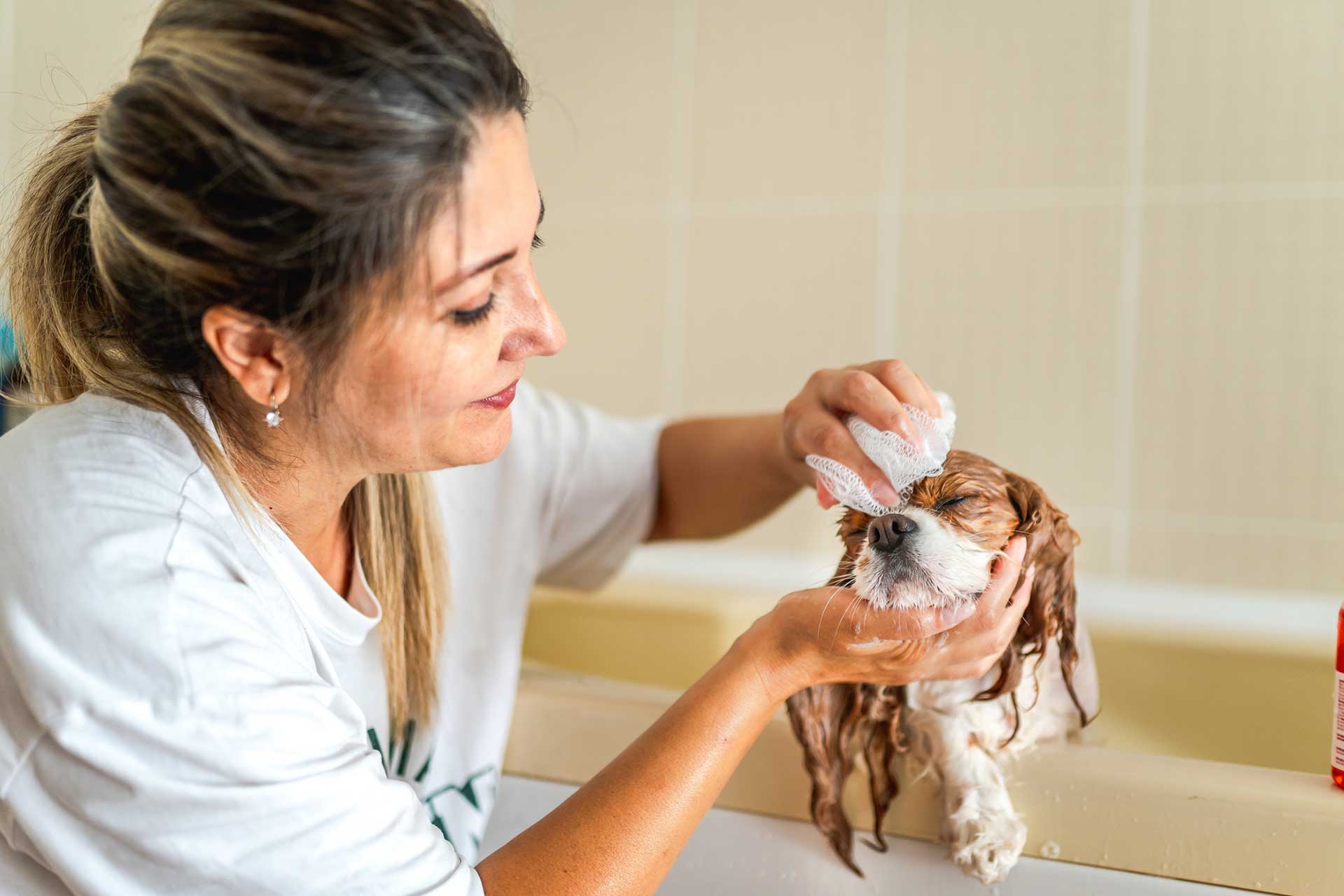Although parasites in dogs and cats are tiny and most often out of sight, these nasty critters can wreak havoc on your pet’s health and, if left untreated, can cause life-threatening illnesses. Learn the signs and symptoms to watch out for and how to protect your cat or dog from these critters.
Most common parasites in New Zealand
A parasite is a living organism that uses a host – such as your dog, cat or even you – for survival. There are a number of parasites to watch out for in New Zealand. Here are the most common ones and how to protect your pet from them.
Fleas
Fleas are tiny insects that cause itching, skin irritation and allergic reactions in your pets. If your pet is scratching excessively, biting their fur or you notice they are agitated and restless it’s worth parting their hair (or checking their stomach) to see if there are fleas. But remember, even if you don’t see the flea, they can still be hiding in the fur.
It’s important to keep your pet protected from fleas year-round. This can be done through monthly treatments, whether oral or spot-on, or with a new once-a-year injection (see details below). During your pet’s regular check-up, ask your vet for advice on the best flea prevention method and guidance on what to do if your pet already has fleas.
Coming soon: Year-long flea and cattle tick protection for dogs
Coming soon to New Zealand, Bravecto Quantum offers year-long protection against fleas and cattle ticks with just a single injection. This new treatment is suitable for dogs aged six months and older and provides a convenient solution—eliminating the need for monthly treatments. It effectively kills fleas and cattle ticks while helping to control home flea infestations for an entire year. Administered once a year by your vet, it ensures peace of mind for pet owners.
Mites
There are various tiny parasites that can bother both cats and dogs. Each parasite can cause different problems and will need specific treatments. Some of the common mites to keep an eye out for in your pets include ear mites (which can present as intense rubbing and scratching of the ears), scabies (which causes redness, inflammation and itchiness of the skin) and demodectic mange (which often presents as patchy hair loss).
Mites are highly contagious and can easily pass from pet to human – so it’s important to seek advice and treatment from your vet immediately if you suspect an infestation.
Intestinal worms
Intestinal worms live in the intestines and feed on the nutrients that your pet consumes. The most common intestinal worms in Australia are roundworm, tapeworm and hookworm. Left untreated, they can cause weight loss, vomiting, diarrhoea, anaemia and even death. Pets usually become infected with intestinal worms by ingesting the eggs of the parasites, which can be found in contaminated soil, faeces and other sources.
Aim to deworm your puppy or kitten every 2 weeks until they’re 12 weeks of age and then continue once a month until they’re 6 months of age. Depending on the product, continue every 3−6 months for the rest of their life.
Vet tip: Intestinal worms can be transmitted from pets to humans, so it’s important to wash your hands after touching your pet or picking up their poo.
Giardia
You may have heard of giardia in humans, but did you know your pets can get this nasty gastrointestinal parasite too? Typically transmitted through the ingestion of contaminated drinking water, food or faeces, giardia can cause diarrhea, foul-smelling stool, weight loss, dehydration and abdominal discomfort and bloating.
If your vet suspects your pet has giardia they will perform a stool test and prescribe medication to treat the parasite.
Signs and symptoms of a parasite infection
Some key signs and symptoms to look out for:
- Intense scratching, biting, and licking their skin
- Patchy hair loss or irritated skin
- Visible parasites on their skin, bedding on in their faeces
- Vomiting and diarrhoea
- Bloating, particularly puppies and kittens
- Weight loss
- Anal scooting
- Sudden paralysis or difficulty breathing (pets who show these signs need emergency veterinary treatment straight away).
If you notice any of these signs or suspect your pet may have a parasite infection, visit your vet. With regular check-ups, preventive measures, and good hygiene, you can protect your pet from these pesky parasites.







